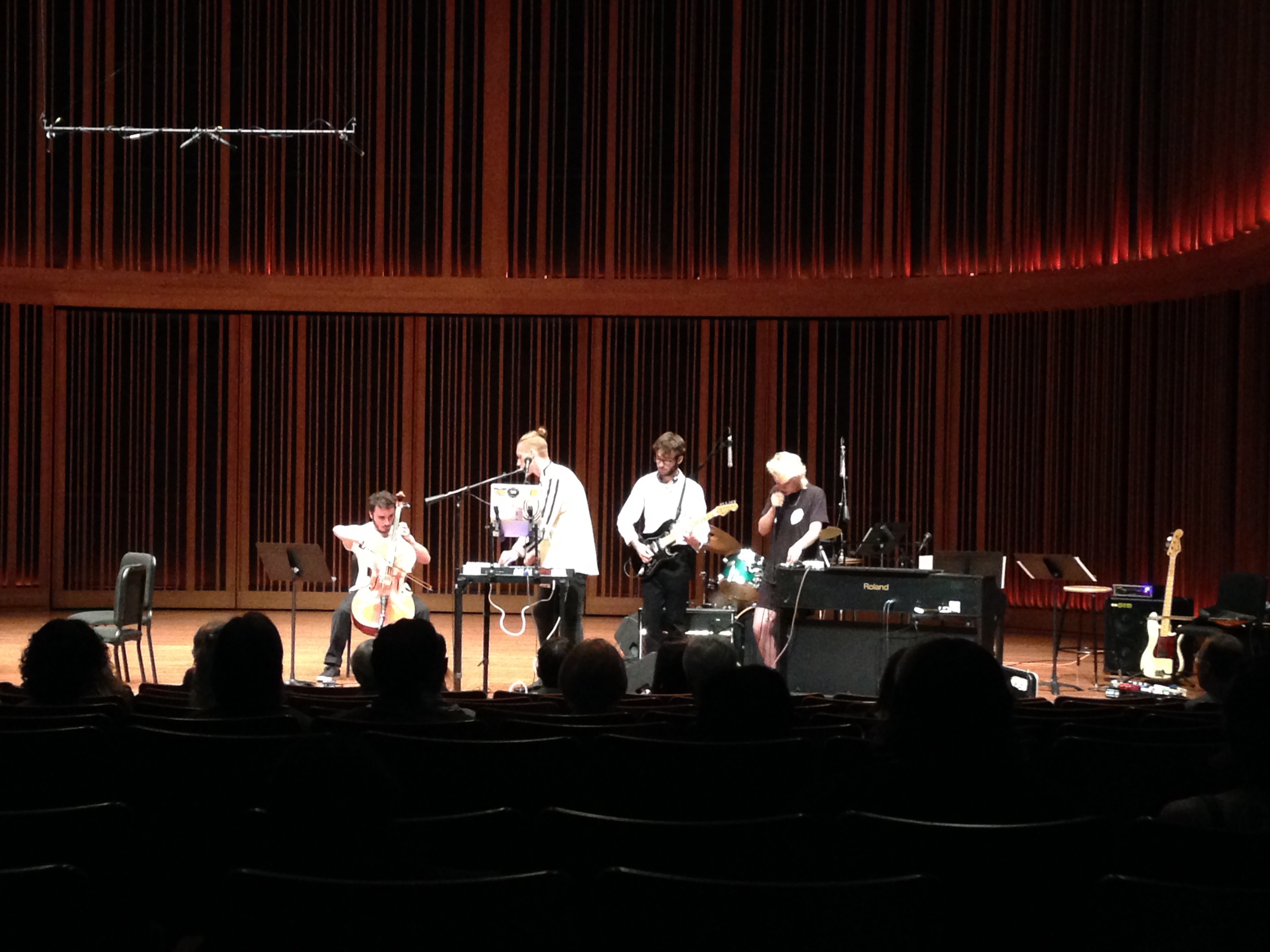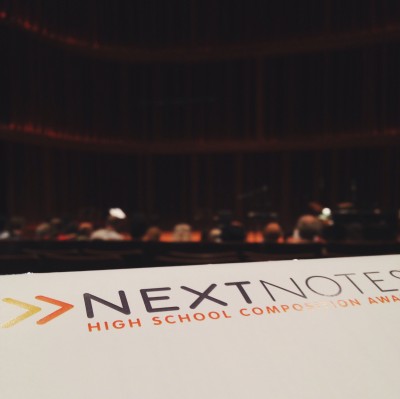
Young composers take stage at NextNotes High School Composition Awards
The Twin Cities-based American Composer’s Forum holds a Knight Arts-funded annual competition to find the best high school composers, offer them mentoring and a scholarship, as well as the chance to perform their work onstage. Here, St. Paul arts blogger Levi Weinhagen writes about the 2015 winners’ performance.
Because the term “songwriter” has been so commonly used when talking about popular and current music, and because there seems to be this insatiable human desire to create hierarchies of art and artists, the word composer often implies someone who writes in the style of European classical music. But composer, in its purest definition, means a person who creates music. So I was really pleased to see that the American Composer Forum’s NextNotes High School Composition Awards really was open to music makers from any and all backgrounds.
The diversity of what it means to be a composer is well represented by the six young winners of the 2015 NextNotes awards.
NextNotes.
Quinn Mason is a recent graduate from North Dallas High School, where he was not only the High School band’s percussion section leader, but also conducted several of his compositions with the band. The piece of Mason’s work that was performed at the 2015 NextNotes concert is a four-part brass arrangement called “Masonian Rondo,” and it is full of aggression and intensity. The evening’s emcee, Emily Reese, asked each of the composers to talk about why they liked being composer and to talk about their work.
“Being a composer lets me communicate with people in the way that I can’t do verbally. It gives me a chance to let people know who I am, what I do, where I come from without actually being there,” said Mason. “Before I wrote ‘Masonian Rondo,’ I really didn’t like writing for brass, simply because it just got on my nerves. When I joined my school band, the North Dallas band, in August of 2013, I was around a lot of brass players, so I said ‘I have to get used to it.’ My band director was a trumpeter, so for two years I bugged him about his instrument, to get into the mind of a brass player. I went to my school’s music library and studied some of the old brass chamber music they had in there.”
Katya Richardson just graduated from the Orange County School of the Arts in California and is not only a highly accomplished composition student, winning scholarships for summer programs at places like Boston University’s Tanglewood Institute and Chetham’s School of Music in Great Britain, but she’s also an academic stand-out, set to pursue neuroscience as well as composition at USC in the fall.
“For me, music is inherently collaborative, and I enjoy thinking about how artists are able to collaborate and share their passions. As an introvert, composing lets me bypass words completely. It instead lets me focus on just a basic form of human communication, which is emotion,” said Richardson.
Richardson’s piece, “R.E.M.,” is filled with frequently changing tempo and rhythm and was written to be performed by three violins and a cello. The violins go in and out of working together in harmony and creating intentional discord. In talking about her piece, Richardson said she wrote it in a 24-hour period without sleep. It nicely captures the ebbing and flowing of energy that can come in a marathon session of creativity.

The young composers during this year’s NextNotes performance.
April Lasken is a songwriter from outside of Chicago who has been playing piano since age six. The work Lasken shared along with her background really demonstrates that the NextNotes awards aren’t focused on any one idea of what a composer is. Lasken’s piece, “The Call,” had elements of being a direct, broken-hearted pop song, but also brought in elements of musical theater show tunes and stood with an ironic distance from itself.
About the forum’s two-day mentorship that led up to the Saturday performance, Lasken said, “This whole program is like a condensed course in what it means to be in the music industry and how to live life as a composer. That not something you’re going to learn in any college, so I’m grateful to be here.”
Aiyana Braun’s “Abrasians” is a composition created for four cellists but requires six cellos because there’s a section of the work that contains a scordatura, the detuning of a stringed instrument. Braun just graduated from Haverford High School in Pennsylvania and performed her first piano composition at the Kimmel Center’s Verizon Hall at the age of 11. Her level of experience for her age is noticeable in the work that was performed at the NextNotes concert in that it pushes the musicians performing and plays enough with pitch and atonality as to risk not working as a cohesive piece of music.
“When I was eight or nine-years-old, I played video games. One of my favorite games to play was called Super Mario Galaxy. The whole point of this game is you have Mario flying around all these stars, exploring these different worlds, and I feel like my function as a composer is sort of similar. As I go through life and explore the various worlds around me, as a composer my job is to extract those moments and then take them into concerts halls so that people can experience the better parts of the world,” said Evan Caplinger. As a composer focused on contemporary classical music, Caplinger is probably the most traditional of the NextNotes award winners. “Forges the Sky,” a composition for three violins and two cellos, features a lot of conversation between the instruments. There is a level of play in the work and moments of otherworldly sounds.
Ian Underhill-Cady is a Minneapolis-based composer who travelled the shortest distance to be at the Mairs Concert Hall on the campus of Macalester college in Saint Paul, but may have come the furthest in getting his work in electronic music to stand up next to classical compositions that may be more often expected in a composition competition. Also keeping things unique was Underhill-Cady’s cast of supporting musicians, made up of fellow members of the Desoplex Art Collective he co-founded while attending the Perpich Center for Arts Education. Underhill-Cady’s piece, “The Disconnect,” featured a high amount of repetition in the instrumentation as well as in lyrical lines. This made for a slightly unsettling echo quality that felt very intentional.
These award winners, along with the diverse mentors of educator Joshua Clausen, rapper Joe Horton, and prolific composer Libby Larsen, demonstrate that the American Composers Forum is sincerely seeking to empower creative composers of every stripe through their programs. And it leaves me excited to see the crop of composers they pull together in their 2016 NextNotes contest.
The American Composers Forum is currently accepting applications for the second annual NextNotes High School Composition Awards. For more information or to apply, visit composersforum.org.
Recent Content
-
Artsarticle ·
-
Artsarticle ·
-
Artsarticle ·

